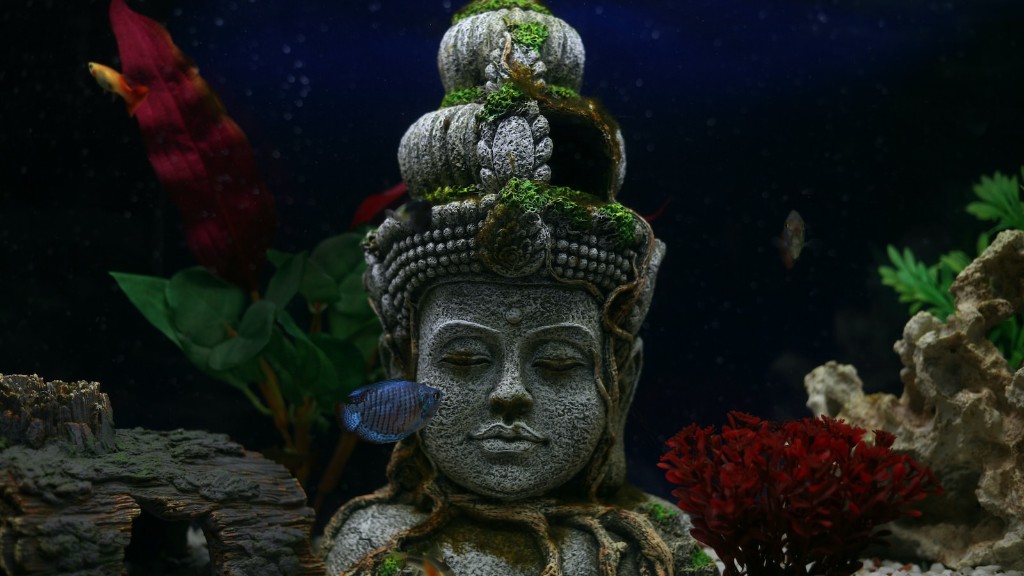A Course in Miracles vs Christianity
For centuries, followers of Christianity have grappled with how to reconcile the teachings of the Bible with hundreds of other faith-based beliefs. In recent decades, a growing number of adherents have sought to bring a different kind of spiritual understanding to their faith. This has often taken the form of alternative interpretations of scripture, or the adoption of spiritual concepts that have only recently emerged. One example of such a belief system is A Course in Miracles (ACIM). While ACIM is not a religion in its own right, it has been influential in helping to bridge the gap between mainstream religion and alternative spiritual beliefs.
The fundamental premise behind ACIM is that every person is an integral part of the spiritual source of all that exists. This runs contrary to popular Christian beliefs around a supreme creator or deity, and emphasizes the notion that all life is unified. While some aspects of ACIM are derived from traditional Christian writings, most of its core sacraments are based on what is known as ‘channeled teachings’. This means that people believe the information found in ACIM has come directly from a higher source—perhaps an angelic being, perhaps God.
One of the key points of divergence between ACIM and Christianity lies in the fact that ACIM does not emphasize the concept of ‘sin’. According to ACIM, there is no concept of ‘wrong’ or ‘right’ behavior—only that of ‘love’ and ‘fear’. The idea is that the path to wholeness and understanding is to choose love over fear. This differs from Christianity in that Christianity holds that there are certain actions or behaviors that are in conflict with the teachings of the Bible and thus are rightfully deemed as ‘sin’.
Another distinguishing factor of ACIM is its inclusion of what is known as ‘miracle-working’. Those who believe in and practice ACIM believe in the transformative power of thoughtforms and miracles. In other words, they believe that positive thinking leads to positive outcomes, and that prayer and meditation can foster healing and spiritual growth. This is a core belief of many spiritual practices today, but it is one that is not found in traditional Christianity.
Finally, ACIM emphasizes the idea of ‘forgiveness’. This concept is paramount in ACIM teachings and is seen as an essential component of any spiritual journey. The idea behind forgiveness in ACIM is to come to terms with mistakes of the past and let go of any feelings of blame. While this concept is also present in Christianity, it is not as prominent a teaching.
Healing
One of the fundamental teachings of ACIM is that everyone has the capacity to heal. The idea is that we can tap into our inner strength to tap into our own higher power and begin the process of healing ourselves. The emphasis on healing can be seen in the weekly gatherings of ACIM adherents, known as “Individual Miracle Workshops” or IMS. These workshops provide an opportunity for people to come together and explore their own spiritual power, and to practice the principles of ACIM.
The teachings of ACIM also provide an avenue for healing on a much wider scale. Through the development of what is known as the “Healing Vortex”, followers of ACIM are able to send healing energy to people and places who are in need. This energy is thought to work on a global level, allowing all to benefit from the collective power of love and healing.
Healing is an important aspect of the ACIM practice, and it can be a powerful tool for transformation and spiritual growth. Those who believe in ACIM believe that the power to heal comes from within, and that everyone has the potential within them to tap into this healing energy.
Not only does ACIM provide a framework for healing, but the weekly group sessions allow for a sense of community that many other spiritual practices do not offer. It is because of this feeling of community and the power of healing that ACIM has gained such a widespread following.
Academic Research
Academic studies have been conducted on the effects of ACIM on people’s mental and spiritual wellness. In one study, researchers found that those who practiced ACIM reported feeling happier and more satisfied with life in general. They also reported feeling more connected to a higher power and feeling more empowered in their life. In addition, it was found that those who practiced ACIM reported having fewer emotional outbursts and were able to focus more clearly.
Other academic studies conducted on followers of ACIM have found that it has a profound effect on one’s self-awareness and spiritual journey. It has been found that those who practice ACIM have a greater understanding of the concept of ‘oneness’ and are better able to manifest their desires from a place of inner strength. The findings of these studies have been encouraging, and they demonstrate how ACIM can be beneficial to those who choose to embrace it.
Those looking to explore the effects of ACIM may seek out the services of an experienced spiritual mentor. Some experienced professionals are well-versed in ACIM and can provide guidance on how to incorporate its principles into one’s life for maximum benefit.
Approach to Death
One of the key differences between Christianity and A Course in Miracles is their respective approaches to death. While most Christian faiths adhere to the concept of ‘eternal life’, ACIM teaches that death is merely a change from one form of existence to another. It is seen as an inevitable part of life and something that should be embraced as a necessary transition.
For followers of ACIM, death is seen not as an ending, but as a releasing of the physical body and a journey into the spiritual realm. In this way, death is not a source of fear or sadness, but instead a chance to experience a higher realm of existence. This outlook on death allows those who practice ACIM to approach death with less fear, and encourages them to focus on living life to its fullest.
Another way in which ACIM differs from Christianity in its approach to death is in its rejection of the concept of Judgment Day. Rather than being judged by a higher power, ACIM teaches that the journey of death is an individual experience and the outcome of that experience is determined by the individual’s actions in life. In this way, ACIM does not view death as a punishment for misdeeds, but as an opportunity for spiritual growth and understanding.
Cultural Relevance
At present, ACIM is embraced by a wide demographic of people, ranging from those who practice traditional Christianity to those who embrace a more alternative spiritual practice. The cultural relevance of ACIM is largely due to its non-dogmatic approach and its willingness to embrace a wide array of beliefs. Those who practice ACIM are encouraged to explore their own spiritual journey and to be open to the possibility of expanding their spiritual practices.
In addition, ACIM is seen as a modern and practical approach to spiritual growth. Unlike traditional Christian beliefs, ACIM encourages its followers to be proactive in their own spiritual growth and to actively seek out ways to deepen their understanding and practice. This open-minded approach has helped to attract people from a wide array of backgrounds and beliefs.
Ultimately, ACIM is a unique spiritual practice that offers a framework for spiritual growth and understanding. Its mix of traditional Christian beliefs and modern spiritual teachings has allowed it to become an increasingly popular option for those looking to explore their own spiritual journey.
Practical Application
One of the ways in which ACIM can be applied to everyday life is through the principles of meditation and mindfulness. ACIM teaches that meditation can be used as a technique to explore the inner depths of consciousness and to find peace and clarity. It also encourages practitioners to be mindful of every thought, emotion, and action in order to cultivate an inner state of balance and harmony.
Another way to implement ACIM in practical life is through the practice of forgiveness. ACIM teaches that the key to spiritual growth is to forgive the mistakes of the past and to let go of any resentment or anger one may be holding onto. By doing this, we open ourselves up to spiritual growth and to new and positive experiences in life.
Finally, embracing ACIM encourages us to open our eyes to the interconnectedness of all things and to be aware of how our individual actions can influence the collective good. When we focus our attention on being of service, we are reminded that we are all connected, and our actions are contributing to the evolution of the collective consciousness.
Self-Discovery
ACIM encourages practitioners to explore their own spiritual path and to embark on their own journey of self-discovery. Unlike other forms of spirituality, ACIM does not seek to impose any set of strict beliefs, but instead encourages its followers to explore their inner depths and to uncover their own truth. In this way, ACIM can be seen as a form of spiritual self-exploration.
The emphasis on self-exploration is central to the ACIM teachings and is key to the practice. Through the exploration of our own thoughts and emotions, we are able to better understand ourselves and our place in the world. This journey of self-discovery can help us to gain a deeper understanding of who we are and how we can better serve our communities.
Ultimately, A Course in Miracles can provide a framework for spiritual growth and self-discovery. By allowing its followers to explore their own inner depths and to find their own truth, ACIM can provide a platform for transformation and healing.
Conclusion
A Course in Miracles is an increasingly popular spiritual practice that offers a unique perspective on Christianity and other traditional faiths. It is a practice that is inclusive of all people, regardless of their religious or spiritual beliefs, and it encourages its followers to prioritize healing and self-discovery. While there are some key differences between ACIM and Christianity, at its core ACIM seeks to bring spiritual understanding to those who practice it.

